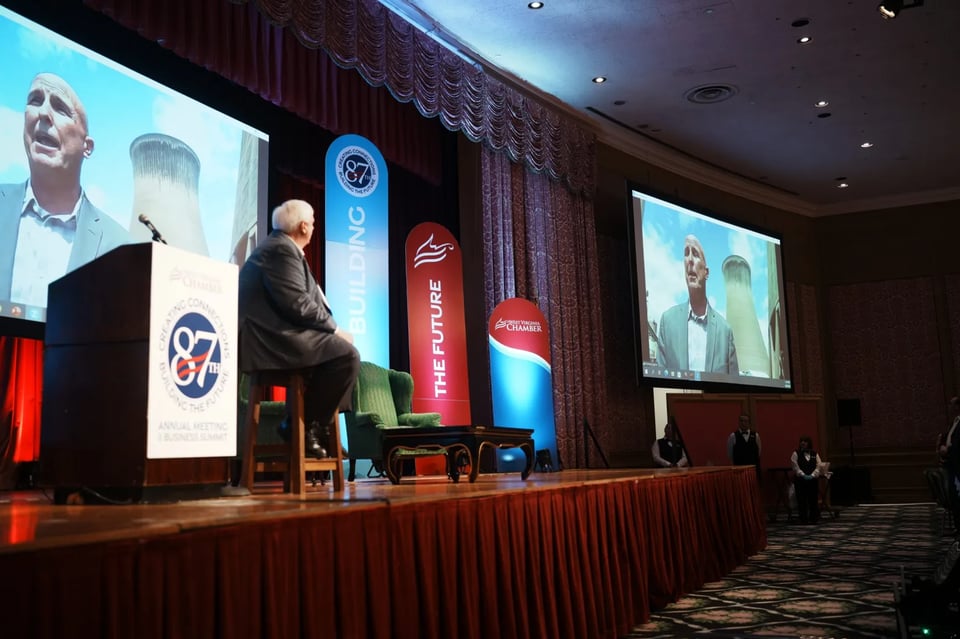A community counting on a 'miracle' to keep their power plant open

Welcome back to The Planet You Save May Be Your Own, a newsletter on local & state climate action.
I’m Taylor Kate Brown and this newsletter grows by word-of-mouth. Someone share or forward this edition with you? Sign up here. You can also read and share this edition online.

It’s hard to get distance from stories when you’re in the middle of reporting them. That counts double when you’re been working on one for several months.
That was definitely the case for my most recent story with Floodlight, co-published with local nonprofit news organization Mountain State Spotlight. I worked on it on-and-off for six months, and the last four weeks were very much on. It was a complicated story, full of legal records, business filings, scientific questions and dozens of people to talk to.
How should I summarize a story that included a discrimination lawsuit, temperatures half the surface of the sun and a campaign loan to a candidate in a third state? Fortunately, I got the distance I needed by being on an extended trip when the story published. So by the time I arrived in New York two weeks after publication, jet lagged and tending a head cold, a friend of my husband asked me to tell him all about it.
The next thing out of my mouth surprised me: “Do you know about the idea of the resource curse?”
Striking gold or discovering oil would seem to guarantee instant fortune. Instead, it often leads to conflict, corruption and poverty. History is full of examples of countries whose natural-resource wealth led to less economic success…
The most commonly suspected causes include under-investment in other industries (such as manufacturing), exposure to price swings, and concentration of wealth that discourages the development of a rule of law and other conditions needed for a vibrant economy.
Plenty of environmental and local advocates have been arguing West Virginia was caught in this trap with coal, having putting all its eggs in the basket of mining the state’s coal seams, shipping them around the world, and using the coal at nearby power plants, connected to a grid could light up most of the mid-Atlantic. But as coal declined as an energy source, West Virginia has doubled down, the state government actively seeking to keep mines and plants open as long as possible, arguably making electricity more expensive in the process.
This particular West Virginia story zooms into one of these plants, Pleasants Power, on the banks of the Ohio River, which was well on its way to permanent closure.
As local and state officials scrambled to prevent Pleasants being shut down for good, Omnis Energy, a company relatively new to West Virginia, pitched them on a new chapter for the power station. The company’s plan promised “revolutionary” technology that would still make use of coal, produce a high-value mineral and generate greener electricity, as well as create new jobs and prevent the destruction of a plant that has been an essential part of this community for decades.
Those promises are now backed with a $50 million, 1% loan from the state’s economic development agency. But the plant’s — and the community’s — future now rests on an unproven technology and a company juggling multiple projects in West Virginia, with a history of loan defaults by the parent company and its CEO Simon Hodson.
There’s a lot of moving parts in this story, but one of the most important is what this plant means to the community and the people around it. It’s a local economic driver, but much more. I was incredibly lucky to co-write this with Sarah Elbeshbishi, a reporter for the Spotlight, who went out to the area to talk to the people who would be most impacted by Omnis’ success or failure on this project. Hearing from them — as well as great photos done by Roger May, meant this story was more than numbers and scientific concepts.
Even if you’re not from West Virginia, this story helps understand what it’s like to be in these resourced areas that are still struggling, and why as reporter, I still have many unanswered questions.
Add a comment: